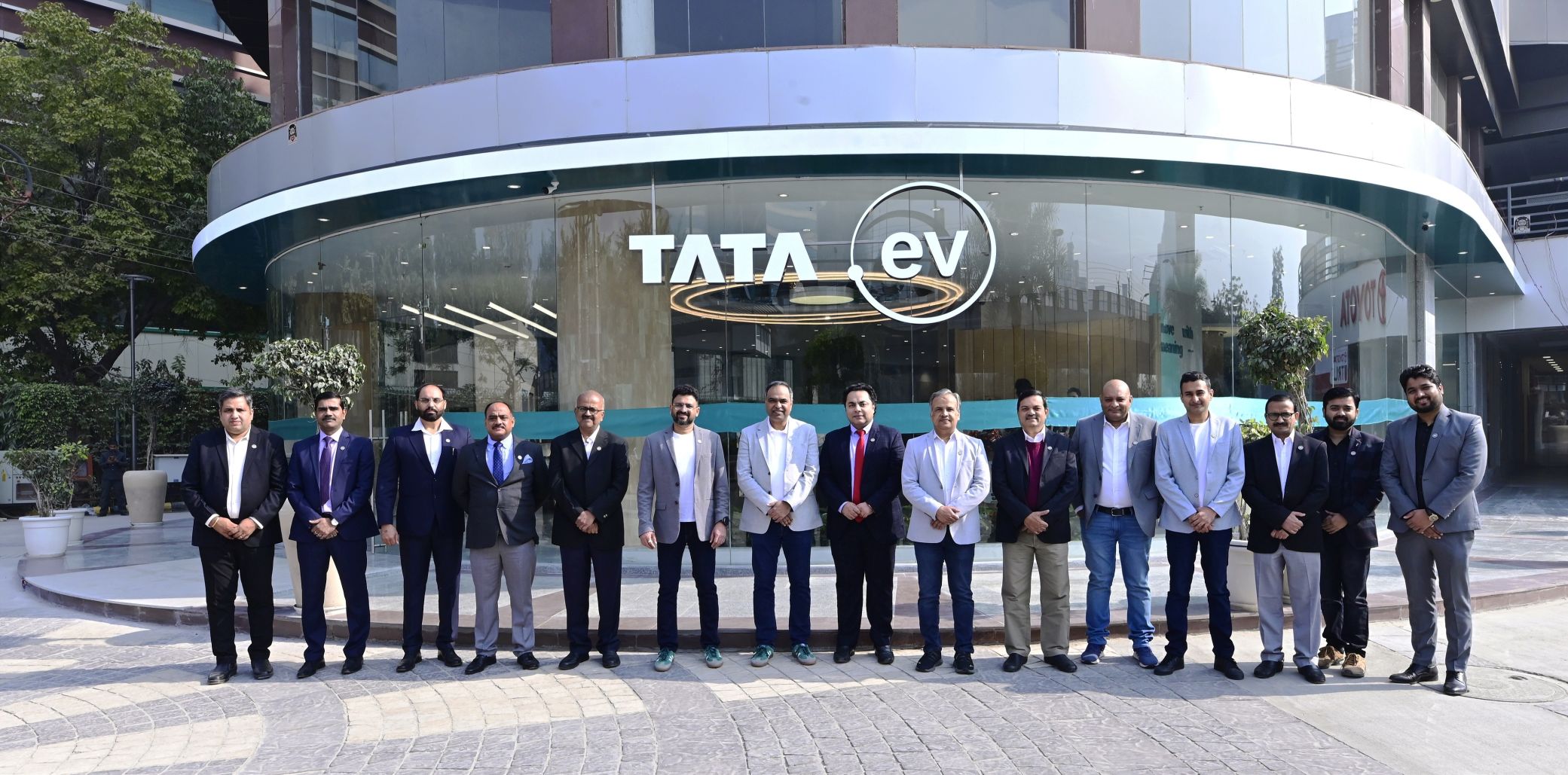A differentiated and engaging experience for the EV community
New Delhi, NFAPost: Tata Passenger Electric Mobility (TPEM), a subsidiary of Tata Motors and the pioneer of India’s EV revolution, launched its TATA.ev stores, catering solely to EV customers, in the prominent auto hubs of Sector 14 & Sohna Road, Gurugram. These stores will be open to public starting January 07, 2024.
As electric vehicles in India continue their growth trajectory, the consumer demographic is rapidly evolving as EV owners expect a seamless blend of advanced technology, sustainable practices, and personalized services.
In line with these evolving trends, TPEM extends its new brand identity, TATA.ev, to its first physical manifestation of sales and service experience. Marking a distinct transition from traditional 4-wheeler showrooms, the TATA.ev stores are designed around the core values of sustainability, community, and technology. These showrooms will embody the core philosophy of ‘Move with Meaning’ and offer an inviting and immersive space for the EV community.
Commenting at the inauguration of the new showrooms, Tata Motors Passenger Vehicles Ltd and Tata Passenger Electric Mobility MD Shailesh Chandra said with insights gathered from over 1 Lakh Tata EV customers, TPEM understands that the EV consumers seek a different kind of customer experience.
“They are sensitive to how the planet is evolving, very conscious about the cost of driving, and desire cutting-edge technology. This is in line with the new brand identity’s core values – sustainability, community, and technology,” said Tata Motors Passenger Vehicles Ltd and Tata Passenger Electric Mobility MD Shailesh Chandra.
The new flagship showrooms are the first physical manifestations of this brand philosophy and TPEM have mapped the customer journey accordingly.
“We want to empower our customers so our plans include the creation of a harmonious community space to facilitate customer gatherings/services, sustainability-focused workshops, and events for customers. These showrooms are not just about retailing EVs but they become TATA.ev community centres in Gurugram,” said Tata Motors Passenger Vehicles Ltd and Tata Passenger Electric Mobility MD Shailesh Chandra.
Starting with these two showrooms today and with many more that we plan to bring in the next 12-18 months, we intend to drive positive change in the automotive industry with a focus on e-mobility.”
According to TPEM Head, Marketing, Sales and Service Strategy Vivek Srivatsa every aspect of the in-store experience has been reimagined at TATA.ev stores.
“Digital, physical, and human elements come together in harmony to deliver a uniquely memorable car-buying experience, with moments of authentic surprise to delight our community at every step along the way. Recognising the very different expectations of EV buyers, the in-store experience has been designed to offer information, advice, and guidance in a friendly environment,” said TPEM Head, Marketing, Sales and Service Strategy Vivek Srivatsa.
While TPEM uses the power of technology to elevate the experience, the human touch remains ever-important.
“From new retail roles to passionate individuals immersed in the essence of our brand, our home of electric has been designed to be warm and welcoming, friendly and fun,” said TPEM Head, Marketing, Sales and Service Strategy Vivek Srivatsa.
The showroom conveys a strong commitment to sustainability right from its design, to the eventual construction, and now day-to-day operations. These stores are a tangible manifestation of our unwavering commitment to sustainability as a company.
All major materials utilised are either recycled or recyclable, with many of them certified with sustainability from global green certifiers. There was an added emphasis on locally sourced materials while building the showroom, significantly reducing reliance on long-distance, high-emission transportation.
The second focal point of this showroom is community, as this space has been created to invite visitors not just to purchase a Tata EV, but also for shared moments, like offering coffee from Blue Tokai, catch-up with fellow EV adopters, and attending events listed in the EVOLVE community calendar – transforming the store to a hub for meaningful interactions beyond a purchase.
The third pillar in this design centers on technology. Thoughtfully integrating digital elements, the store crucially aims to support and not overwhelm its visitors. The screens would provide testimonials from current owners, addressing concerns and myths around EVs, customization options for customers keen to know more about their Tata EVs, and personalized welcomes for families arriving to receive the delivery of their EVs.
With a dominating market share of over 71% in the 4-wheeler EV segment, TPEM has consistently demonstrated its pioneering spirit by introducing cutting-edge technologies and innovative products. Responsible for actively shaping the future of mobility, the company also recently crossed the milestone of selling 1 lakh Tata EVs.
The company aims to set new benchmarks in the EV segment by focusing on seamless connectivity, state-of-the-art design, exceptional performance, and uncompromised safety across its electric vehicle lineup. With a focus on community, sustainability, and technology, TPEM is redefining the future of transportation.
About Tata Passenger Electric Mobility Ltd (TPEM):
Tata Motors leads the electric mobility revolution in India and is committed to making e-vehicles more accessible. Powered by its proprietary, state-of-the-art Ziptron technology, the Tata branded EVs (cars & SUVs) are highly appreciated for their powerful performance, zero emissions, connected features and low operating costs. Being an early advocate of ‘EVs is the future of mobility’ and understanding the criticality of an enabling ecosystem to realise it, select Tata Group companies have collaborated under ‘Tata UniEVerse’ to jointly accelerate the acceptance and adoption of EVs.
Tata Passenger Electric Mobility Ltd., a subsidiary of Tata Motors with TPG Rise Climate as an investor, aims to invest $2 billion by 2026 to launch 10 new electric vehicles, build a dedicated BEV architecture, support local manufacture of key components and development of advanced automotive and battery technologies. It also intends to catalyse the creation of a widespread charging infrastructure as well as growth of other infrastructure to facilitate rapid EV adoption in India.





